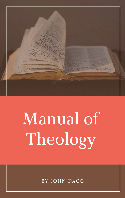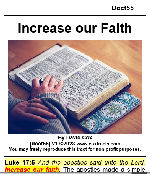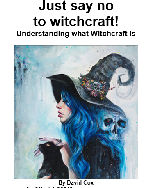Ads
In this post I want to give my views of Methodism, and John Wesley. Let me say that I am kind of unique in some of my views, and I have read a lot in some of these different denominations and groups. But I have also studied cults and religious sects, and I am keenly interested in separating biblical Christianity from man’s creations.
I know Methodists, and let me state my position from the beginning. I am not a Methodist by choice. I have studied it enough to know that I do not agree with some of the foundational tenets. Over the course of my ministry, I have seen where Methodism and the foundation laid in Methodism by Wesley, and I do not agree with where that takes you.
But on the other hand, I do not agree with Calvinism either, and their foundations are just as equally opposed to Scripture that I know. Of the two, each has certain beneficial aspects of their movement. Calvinists study Scripture intensely, maybe too intensely because they are trying to justify their unbiblical position. But the good thing about Calvinists is that they do exposit Scripture (as a habit), and they rely heavily on Scripture to make their arguments. Their downside (besides jumping to unbiblical conclusions in election and other things) is that they are a bunch of “cold fish”. Calvinists have a hard time getting any passion raised about prayer, preaching, or soul-winning. I see that passion in Jesus, the apostles, Paul, etc. That tradition or primitive church element is just lost on modern Calvinists.
The good thing about Methodists is that they are a passionate bunch of people that will move your soul if you will allow yourself to be carried along in their stream for a while. Works like those by Andrew Murray, E.M. Bounds, and others of similar vein that were born and worked in the Methodist structure are great works to get your soul fired up. The downside of Methodists though (besides their unbiblical position on a second work of grace) is that they rely way too heavily on experiences and emotions, and the modern Tongues and Charismatic movements are greatly off-base scripturally because of this foundation from their background. I would also say that Methodists in general have a great desire to love Jesus (emotionally), and they put a lot of emphasis on holiness and piety. As I meet Calvinists that are conceited in their own personal “election” and live like devils, I greatly appreciate the Methodists as a contrast.
It would be great if we could take the best of each, and avoid their disadvantages.
Historical Framework
Let me begin by explaining some historical framework as I understand it. Surely there will be somebody who wants to correct me, and I don’t doubt some points may not be exact here. But we start with the early churches of the New Testament. As time went on, new churches sprung up through the fevor of the Christians, and not all the pastors or leaders of these churches were equal. Some were great students, great persuaders, and great organizers, and some were just “normal” guys. The Roman Catholic church came about as these “great” preachers began to garner first influence, and then control over the other not so great churches. This hierarchy system is not the New Testament, but is an invention of the early post-apostolic churches. This is where Satan started to work. Catholicism also adapts itself (doctrine and practice) incorporating the false religions into itself. This is unbiblical as a process or way of “doing church”, and the end result is also a lot of unbiblical things happening.
The next step is Anglicanism. Anglicanism is Roman Catholicism with a distintive English “flavor”. The Catholic church in England separated itself from “Rome” Catholicism to make its own entity. Some priests in England remained loyal to Rome, but that is another story.
When Anglicanism “happened”, something wierd happened with it. I personally believe that somebody somewhere in the Anglican church said to the leaders, “We have separated from Rome, so find us differences with Rome so that we can make ourselves unique and different from Roman Catholicism.” I have not found a historical place where that happened, but as I read Anglican works, and even during this period the King James Bible version came out of the Anglican church, but I note that there are some really profound and “GOOD” works by some of these Anglican priests. Some commentaries are filled with comments that show an apparent deep understanding of the Bible. I don’t know how people can understand the Bible and say so good things and still worship Mary, and be a part of the sacerdotal system which is blasphemy. But they do.
But there is an inherent problem with Catholicism. Catholics have few or no morals. This is a serious problem in the Catholic structure of things, and it has gotten so severe that even the priests and nuns are really lacking any ethics or moral compass. They speak shining words of exhortation, but reality is that even they themselves make little attempt at living a moral life.
As such the solution the Catholic church decided on to solve this is Catechism. Catechism is a Bible class of basic beliefs. This is needed because most Catholics (the majority) rarely attend Mass, and Mass is a communion with God service, but it really is not a doctrinal teaching platform. Changing Mass into Latin, a language not understood by the people basically killed the possibility of any real teaching going on during Mass.
So Catholics marry, have a Catholic baby, and that baby is guaranteed a place in heaven. (Basically that is their teaching, or at least how run-of-the-mill Catholics understand it. Technically Catholic babies go to limbo or purgatory, as ALL Catholics, and after a certain amount of suffering they go to heaven. But Catholic scholars don’t stress that point too much.)
The problem though is that most normal Catholics don’t understand why they have to participate in religion beyond the most superficial things if they are going to heaven anyway. Their kids too. So the morality problem is grave in Catholicism. Their is no motive to change morally and live an upright life if either way you will end up in heaven because you are Catholic.
Into this problem, the Anglican church was born. Since Anglicanism is basically a “warmed up leftover Catholicism”, they inherited the same problems as their mother church. But for the theological thinkers, there is a graver problem. If a person is really saved, then there should be a natural born desire (not from natural birth, but from the time of their spiritual birth) to be like God, and to be moral. In the end, morality or immorality is being like God or different from him. Why should the church leaders have to been, plead, threaten, etc. to get people to do what God wants them to do? Shouldn’t they want to do this anyway because they are born again?
Enter John Wesley. He saw this as a sanctification issue. These people are carnal people, and they are not sanctified. This is a wrong presumption, because the issue above is true, sanctification and Christlikeness is a driving force within each true Christian because of their relationship with God, and when it is not there, and the person doesn’t desire it, then it is because that person is not truly saved. But John Wesley saw the issue as people need to focus on their being holy. This part is good.
Now Wesley concluded that there must be a “second work of Grace” involved. He took standard (true) doctrine on sanctification, and concluded that it is an event the same as salvation is an event. But how does this happen? Observing people he saw some very holy people, and some “Christians” that were not even close nor desiring to be holy. The holy people must have had an experience (like salvation) when this holiness “happened” to them. Thus was the Methodist movement born.
Wesley focused on the “Methods” of being holy. He taught and preached on these methods. For him (and he has a lot of reason here, although not all that he thinks he has), the strongest thing to persuade people to be holy is the experience oriented story. There are experiences and emotional situations expressed in the Bible. But these are not the sum total of why we should change our behavior. Logic and the doctrines of God lay the foundation, and these emotions help bolster and motivate people to go on into doing great things for God.
But Wesley’s focus on emotions is the very substance of Methodism. If you read typical Methodist works (even Wesleyean, Charismatic, Nazarenes, Pentecostal, etc.) you will see an appeal to experiences of others, and greatly moving emotional stories. Some writers will set the context with some Scripture (as Charles Finney) and then use the same authority of personal experiences to compell people to their position.
Women Preachers
One of the problems of exalting feelings and emotions is that women are much more emotional than men, and they end up being a lot better at generating emotions from people. Within the Methodist movement, Paul’s warnings about women are not to speak, teach, preach, or lead church activities, sermons, services, etc. is totally thrown out the door.
While this is well established Bible, Methodism has no real biblical reason for allowing women to dominate other than they do it (being emotionally stirred up) better than men do.
Denominational Structure
The New Testament church saw no denominational structure, not even under the church at Jerusalem. Paul and Barnabas went from Antioch to Jerusalem to straighten out their doctrine. Once they compared notes, they found out that the Judaizers coming out of Jerusalem were claiming that their false doctrines were ordained and supported by the Jerusalem leaders when it wasn’t, so their rebuke ended up in a non-event. The Antioch church and the Jerusalem church were “on the same page” on the issues.
But the Methodist church is still holding structures and traditions from its Anglican/Catholic foundation, and the assignment of preachers is one of these things. We have no indication that any New Testament churches had any kind of structure over more than one church. Each church had their own leadership, and it was independent from all other churches both as far as authority and finances.
Salvation Message
While I do see Jesus and other preachers in the New Testament (as well as Old Testament) getting emotional and exhorting with passion, we must distinguish that they first laid the foundation of declarations from God, which established doctrine and the reality of the situation, and then they turned to passion. Just getting passionate with people does not do it the biblical way. Also there has to be a clear explanation of the gospel message.
While old line Methodists seem to be correct here on this point, some of the other permutations of Methodism place the emotional experience IN PLACE OF SALVATION. Somebody was healed so they consider that their “experience” of salvation. This is incorrect. The plan of salvation as seen in the gospel always held the prime place in the teaching and preaching of the NT preachers. That message was what they pushed, not the emotions of being with Christ at his transfiguration or crucifixation or ascencion. The experiences that they had with Christ were truly tremendous, but they did not use these things to move people. They used the truth of the Gospel to “move people”.

Dagg Manual of Theology (and links to this work in various other formats).
Dagg Manual of Theology (MySword for Android)
Dagg Manual of Theology (theWord Bible Format)
Dagg Manual of Theology (esword format)
Dagg Manual of Theology (PDF Format)






